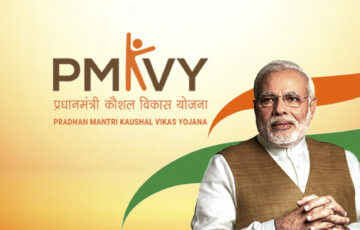Role of civil society in a democracy
Relevance
- GS Paper 2 The role of NGOs, various groups and associations, institutional and other stakeholders.
- Tags: #governance #civilsocieties #ngo #goodgovernance #democracy.
What is the Role of Civil society in democracy?
Civil society is pivotal in democratic states, fostering societal well-being and institutional effectiveness. Through advocacy, accountability, and community engagement, civil society organizations play a vital role in shaping policies, protecting rights, and maintaining the health of democratic systems.
Let’s delve into the roles and functions of civil society organizations (CSOs):
- Policy Advocacy: Civil society organizations engage in policy dialogues with the government on various important issues, such as poverty alleviation and empowerment of disadvantaged sections of the society. These organizations don’t just influence policy formulation but also actively participate in policy execution, monitoring, and review.
- For instance, “Save the Children India,” an NGO, works tirelessly to restore and protect the rights of children. They play a pivotal role in shaping child-centric policies and ensuring their implementation.
- Protection Role: CSOs like the “Association for Protection of Democratic Rights” play a vital role in providing legal aid to individuals who lack access to the judicial system. They act as a safeguard against repressive actions by authorities, protecting the rights of citizens.
- Promotion of Transparency: Civil society organizations have been instrumental in promoting transparency and accountability in governance. They have been key players in the enactment of important laws such as the Right to Information (RTI) Act of 2005 and the Lokpal and Lokayukta Act of 2013. These laws empower citizens to access government information and provide mechanisms to combat corruption.
- Mobilization of the Citizens and Resources: CSOs actively involve communities in various development initiatives by engaging them in the planning and design of projects. This not only fosters a sense of ownership and participation among citizens but also allows the government to reconsider policies that may not be people-friendly.
- CSOs have successfully harnessed community resources to undertake projects such as building community infrastructure, constructing houses, providing sanitation facilities, and delivering basic services like water and electricity.
- Active Partners in Development: Numerous NGOs, such as “Asha” and “Pratham,” are deeply committed to providing education to children in rural areas and slums. They play a pivotal role in ensuring that underprivileged children have access to quality education, thus contributing to social and economic development.
- Advocating for Human Rights: Civil society groups often champion human rights, including freedom of speech, assembly, and the right to a fair trial. They work to protect the rights of minorities, vulnerable populations, and individuals, ensuring that all citizens are treated with dignity and respect.
- Providing Social Services: Some civil society organizations fill gaps in government services by providing essential social services, such as healthcare, education, and disaster relief. They often serve marginalized and underserved populations, helping to improve their quality of life.
- Conflict Resolution: Civil society organizations can mediate and facilitate dialogue during times of political or social unrest. They work to reduce tensions, promote reconciliation, and find peaceful solutions to conflicts, contributing to the stability of the democratic system.
- Monitoring Elections: Many civil society groups monitor elections to ensure they are free and fair. This helps build trust in the democratic process and ensures that the results reflect the will of the people.
- Advocating for Environmental Conservation: Environmental NGOs and civil society organizations play a crucial role in advocating for environmental protection, sustainable development, and climate action. They push for policies and practices that safeguard the environment for future generations.
- Fostering Social Inclusivity: Civil society organizations work to ensure that the voices of marginalized groups, such as women, minorities, and the economically disadvantaged, are heard in the political process. They promote inclusivity and social justice.
In essence, civil society serves as a vital component of a healthy democracy. It acts as a check and balance on government power, facilitates citizen engagement, and advocates for the protection of individual rights and the welfare of society as a whole.
How to make civil society more robust and transparent?
Ensuring the robustness and transparency of civil society in India and elsewhere involves a multifaceted approach. Some of the techniques are –
Strengthening Legal Frameworks and Regulations
- Implement and enforce laws that regulate civil society organizations, ensuring transparency and accountability. For instance, in India, the Foreign Contribution (Regulation) Act (FCRA) was amended to enhance transparency and restrict foreign funding for NGOs that failed to comply with reporting requirements.
- Regularly update and streamline regulatory processes to reduce bureaucratic hurdles and enhance transparency.
Enhancing Financial Transparency
- Require CSOs to maintain detailed financial records and make them accessible to the public. In India, organizations are mandated to file annual financial reports and disclose their sources of funding under the FCRA.
- Encourage CSOs to undergo regular financial audits by independent auditors.
Encouraging Self-Regulation
- Promote self-regulation within the civil society sector. Encourage organizations to adopt voluntary codes of conduct and adhere to best practices in governance.
- Develop a system for CSOs to self-monitor and report any violations or irregularities.
Promoting Transparency in Funding
- Ensure that the sources of funding for CSOs are transparent and free from illicit or unethical sources. In India, mechanisms like the Public Financial Management System (PFMS) have been implemented to track government grants and payments to NGOs.
- Encourage CSOs to diversify their funding sources to reduce dependency on a single donor.
Public Engagement and Education
- Conduct awareness campaigns to educate the public about the role and importance of civil society organizations.
- Encourage citizens to actively participate in monitoring CSOs and reporting any concerns regarding their activities.
Collaboration with Government
- Foster cooperation between the government and civil society to create policies and regulations that enhance transparency. In India, NITI Aayog collaborates with various NGOs through Darpan Portal and think tanks to develop policies and initiatives.
Independent Oversight Bodies
- Establish independent oversight bodies or ombudsman to investigate complaints and irregularities within the civil society sector. These bodies can play a crucial role in ensuring accountability and transparency.
Digital Platforms and Technology
- Utilize technology to create online platforms for CSOs to report on their activities and funding sources, making information easily accessible to the public.
- Leverage blockchain technology for transparent and tamper-proof record-keeping of financial transactions.
Whistleblower Protection
- Enact whistleblower protection laws to safeguard individuals who report corruption or wrongdoings within CSOs. Protecting those who expose unethical practices fosters transparency.
Public Awareness
- Raise public awareness about the importance of transparency in civil society. Encourage citizens to actively engage with CSOs and hold them accountable for their actions.
- By implementing these measures, civil society can better serve its purpose in a democratic state while upholding high standards of accountability and transparency.
Provisions of national policy on Voluntary sector, 2007
The National Policy on the Voluntary Sector, 2007, aims to provide a comprehensive framework for the functioning and development of the voluntary sector in India.
- Definition and Recognition: The policy defines the voluntary sector and recognizes its vital role in the development of the nation.
- Regulatory Environment: It calls for a conducive and enabling regulatory environment, ensuring a hassle-free registration process for voluntary organizations.
- Promotion of Voluntarism: Encourages and promotes voluntarism by creating awareness and recognizing the value of volunteer work.
- Transparency and Accountability: Advocates for transparency and accountability in the functioning of voluntary organizations, promoting ethical standards.
- Government-NGO Partnership: Encourages partnerships between the government and voluntary organizations to achieve common objectives, particularly in areas like healthcare, education, and social welfare.
- Funding Mechanisms: Suggests diverse funding mechanisms, including public and private sources, for financial sustainability and self-reliance.
- Legal Framework: Recommends a robust legal framework for the sector and compliance with laws and regulations.
- International Cooperation: Encourages international cooperation and collaboration for mutual benefit and sharing of best practices.
- Research and Documentation: Promotes research and documentation of the voluntary sector’s work and impact.
- Recognition of Diversity: Recognizes the diverse nature of voluntary organizations and acknowledges their unique contributions.
- Disaster Response: Highlights the role of voluntary organizations in disaster response and relief efforts.
- Gender Equity: Advocates for gender equity and the empowerment of women within the voluntary sector.
Challenges pertaining to the functioning of civil society
- Regulatory Burden: Complex and sometimes restrictive government regulations, such as the Foreign Contribution Regulation Act (FCRA), hinder the operations of civil society organizations.
- Lack of Transparency: Some CSOs struggle with transparency issues, leading to concerns about misuse of funds. For example, there have been cases of financial irregularities in certain NGOs in India.
- Funding Vulnerability: Heavy reliance on foreign funding can make CSOs vulnerable to shifting geopolitical interests and regulatory changes. The government’s crackdown on foreign funding has posed challenges to many organizations.
- Government Skepticism: A perceived skepticism from the government towards civil society’s advocacy and watchdog roles can create a challenging environment. This was evident in the crackdown on NGOs advocating for human rights and environmental issues.
- Operational Hindrances: CSOs often face logistical and operational difficulties in remote or conflict-affected areas, limiting their ability to reach marginalized populations effectively.
- Capacity and Skill Gaps: Many CSOs struggle with a lack of skilled personnel and organizational capacity to fulfill their missions efficiently.
- Security Risks: Organizations working on sensitive issues, such as human rights and environmental protection, face security risks, including threats and harassment.
- Lack of Public Trust: Some CSOs have faced a decline in public trust due to controversies and allegations of financial mismanagement, affecting their credibility.
| Mains Question
In the context of India, critically assess the evolving role of civil society in strengthening democratic processes and governance, highlighting key challenges and opportunities. |








